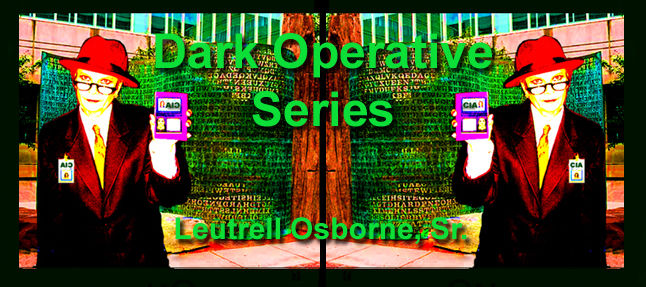Mission creep is the expansion of a project or mission beyond its original goals, often after initial successes. A term of disapproval, mission creep is usually considered undesirable due to the dangerous path of each success breeding more ambitious attempts, only stopping when a final, often catastrophic, failure occurs. The term was originally applied exclusively to military operations, but is applicable to intelligence and espionage, as well the growth of bureaucracies and corporations. A prime example is the covert action COINTEL FACTOR targeting US citizens. Is it really over? [more to come]
HUMAN SURVIVAL TECHNOLOGIES "PUBLIC INTELLIGENCE IN THE PUBLIC INTEREST" "Control follows awareness." - Special Ops maxim MANIFEST DESTINY: We can create an evolutionary politics to build a more creative future. Calculated cycles of commodification and scarcity, business and war have driven the military/industrial complex and the multinational corporate climate. Cover Ups and confusion have paralyzed us into apathy where nothing significant can be trusted, believed or known. One percent of humanity controls 40% of global wealth. But we can empower ourselves to resist status quo politics and shape ourselves a better destiny - a 21st century Manifest Destiny that fulfills our positive spiritual potential. If we don't want a dark future for humanity, we must reinvent ourselves and our culture from the foundation upwards. Even if that is fantastically radical, it can still happen, one inspired person at a time and cascade toward a visionay approach to large-scale societal transformation that heals personal and global socioeconomical scars. Competent citizenry can learn to impliment constructive visions for our collective planetary future. Deep and broad visions can stimulate reflection and lively discussion of contemporary solutions that can become the scaffolding for action plans from the community level upwards. A courageous and truly integrated vision would include a detailed strategy for a vibrant and life-sustaining future. Individually and collectively we have to redefine what it means to thrive with more compassion for others, not just survive. The paradigm needs to switch from "dog eat dog" to "we're all in it together." We propose a negentropic paradigm for the valuecosm and governing principle of ecological development. ‘Edge’ artists as strange attractors are a source of negentropy in society, catalysts of contemporary life. We can draw from the organic metaphors of quantum physics, field theory, and chaos theory to illuminate the state of the arts.DIY PSY-STRAT for Transmodern Living: Breaking through Collective Deceptions. Position Yourself in the Battle for Your Mind: Stealth, Health & Wealth
Futuring includes six synergetic aspects: 1) mapping acceleration, 2) anticipating, 3) timing and 4) deepening the future, 5) creating alternatives to the present and 6) transformation. Aspirational futuring includes environmental scanning, forecasts, scenarios, visions, audacious goals and understanding change and strategic issues (analysis). Trends identify key forces shaping the future. Environmental scanning includes global, local, political, economic, technological, environmental and social trends. Roadmaps help us visualize strategies and collaborative foresight. Paradigms are the assumed truths of our logic. Acceleration is built into the physics of the universe.
References:
A. http://www.youtube.com/watch?v=_soDLWCDphM&feature=player_embedded
B. http://www.youtube.com/watch?v=Zejpx_1Fs5w (2006?)
Mission creep is ubiquitos wherever oversight is lacking. It opens the door to infringements on our constitutional rights.
I want to do something to ensure that the dirty tricks of the US Govt get connected to the so called Congressional apology for slavery. What not expand that apology to include an apology for discrimination period which is depicted in the videos.
These two videos on you tube are relatively old but for the first time I see Covert Action Intelligence describing COINTEL PRO. That is new and accurate. The originators of these two videos understood and did the right thing.


